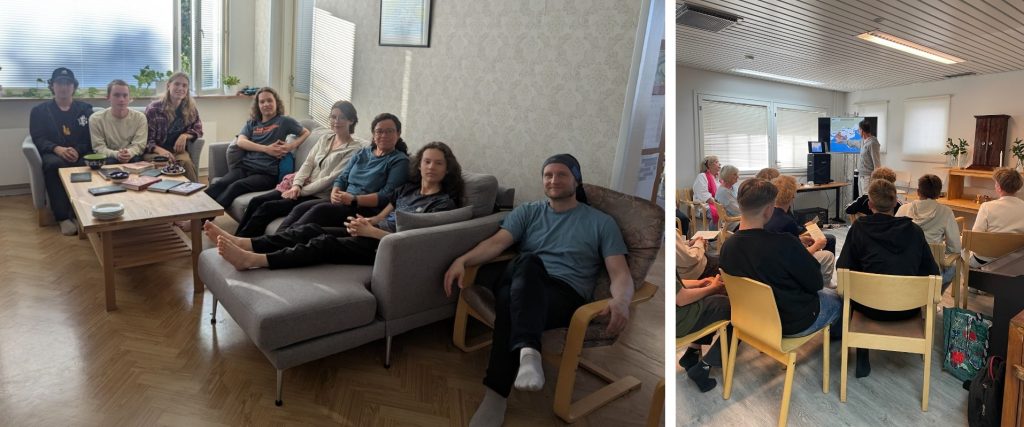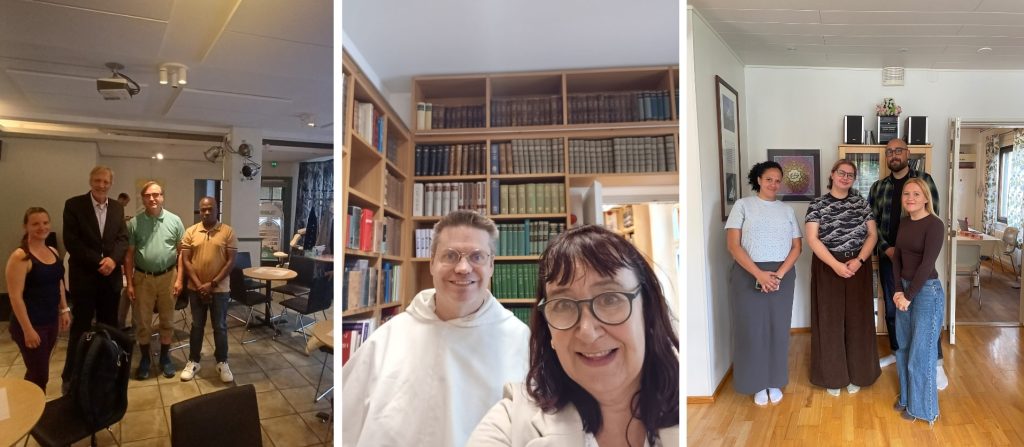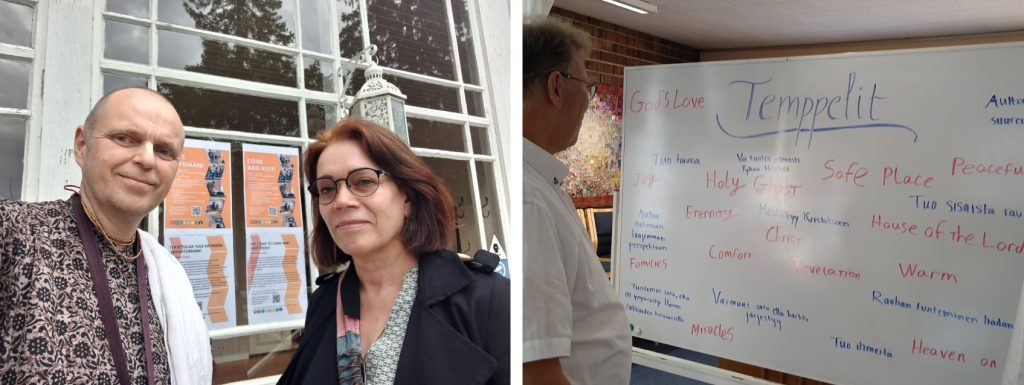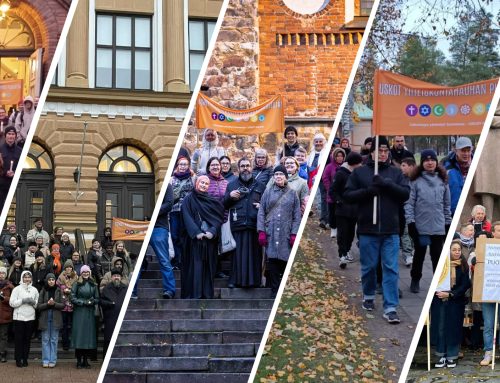The purpose of the Come and Visit event was to foster openness and reduce polarization. Visitors to religious communities had the opportunity to participate in activities such as meditation, genealogy, baking Karelian pies, or simply meeting new people and learning about different religions. On August 19, 2025, 36 communities across 15 cities welcomed guests to their places.
This was the second time the event was held, and many new cities joined in, including Helsinki, Espoo, Turku, Tampere, Oulu, Jyväskylä, Joensuu, Rauma, Pietarsaari, Lahti, Pori, Kokkola, Kouvola, Hämeenlinna, Kuopio, Lappeenranta, and Kajaani. Participating communities included the Bahá’ís, the Church of Jesus Christ of Latter-day Saints, the Finnish Islamic Congregation, the Evangelical Lutheran Church, the Orthodox Church, the Catholic Church, the Adventist Church, Buddhist communities such as Soka Gakkai and Nirodha, and Hindu communities such as the Hare Krishna movement and Shirdi Sai Dham.
“In these challenging times, it is more important than ever to be open and kind to one another. In Finland, we still enjoy a peaceful society. We should be grateful that we can organize events like this and create dialogue,” said Katri Kuusikallio, Executive Director of the CORE Forum.
During the event, interesting discussions took place on topics such as the symbolism in church buildings, peacebuilding, the law of karma, connection with others, and even manifestation at the Bahá’í community in Turku. Raha Sarvestany from the Bahá’í community shared that the conversations were respectful and warm, encouraging all parties to participate.
Many high school students visited various locations. For example, at the Soka Gakkai community in Helsinki, Tatu Kuivalahti introduced the history and practices of the community to a group of young people. In Joensuu, interested students visited the Bahá’í community and engaged in active and meaningful discussions.

On the left: high school students and Bahá’í community members in Joensuu. On the right: Tatu Kuivalahti presenting the Soka Gakkai community to youth.
Building societal peace is one of CORE Forum’s missions. We asked members of participating communities what peacebuilding means to them and how it manifests in everyday life. Gabriel Salmela from the Catholic Church said that bonds of friendship help build connection and societal peace. Marjatta Valkama and Pirkko Harmaala from Soka Gakkai shared that they find the seed of peace through meditation, first within themselves and then in their surroundings. Juha Lempiäinen from the Buddhist Nirodha community emphasized that peacebuilding is long term work, reminding us that lasting change begins in the heart. In everyday life, this can mean being present, kind, listening, smiling, and helping with daily tasks.

Left: Annankatu Adventist Church premises. Center: Brother Gabriel and Executive Director Katri Kuusikallio. Right: At the Bahá’í community in Käpylä, Helsinki, Dana Graydi from Dialogue4Peace (also a member of the Forum’s youth section), Anna, and community representatives Safa Hovinen and Maria.
Safa Hovinen, Secretary general of the Finnish Bahá’í community, sees peacebuilding as rooted in the idea of human unity, where everyone is seen as equal. In practice, this should lead to serving others and showing kindness, trustworthiness, and honesty, putting sacred teachings into action. Sarvestany reflected that peacebuilding can no longer be seen solely as the role of governments. She emphasized the importance of practical, value-based initiatives. Actions based on human dignity and social justice offer concrete examples of peacebuilding in practice. Bahá’í community member Maria highlighted the importance of friendly interaction at the grassroots level, which benefits and creates well-being for all parties. In everyday life, one can consider how to be helpful to others and genuinely interested in their surroundings.
Eeva Ståhle from the Church of Jesus Christ of Latter-day Saints in Turku shared that the church president Russell N. Nelson’s 2023 speech “Peacemakers Needed” has helped her to become a peacemaker again and again. Kristi Aluko and Sakari Vehkavuori from the Adventist Church on Annankatu, Helsinki, said that inner peace is born from connection with God and is always linked to helping others. Peace means hospitality and stepping out of our own bubbles to meet others.

Left: Timo Ilves/Gopinath Das with Malmi parish’s diaconal worker Minna-Sisko Mäkinen. Photo: Timo Ilves. Right: Reflections on the significance of temples at the Church of Jesus Christ of Latter-day Saints in Turku. Photo: Eeva Ståhle.
Timo Ilves/Gopinath Das explained that the Hare Krishna movement’s view of peacebuilding is based on seeing all living beings as spiritual souls, eternal, small parts of God. Ilves said that we have a spiritual connection with all living beings. In this material world, however, everyone is covered by a material shell, which makes us appear different. This should always be taken into account, and we should live together in a way that maintains basic respect for others. This also includes animals.



